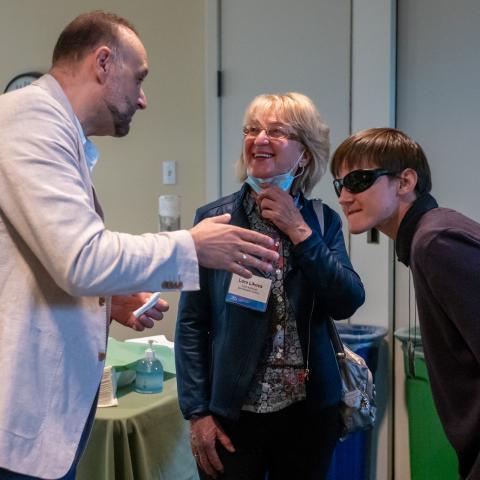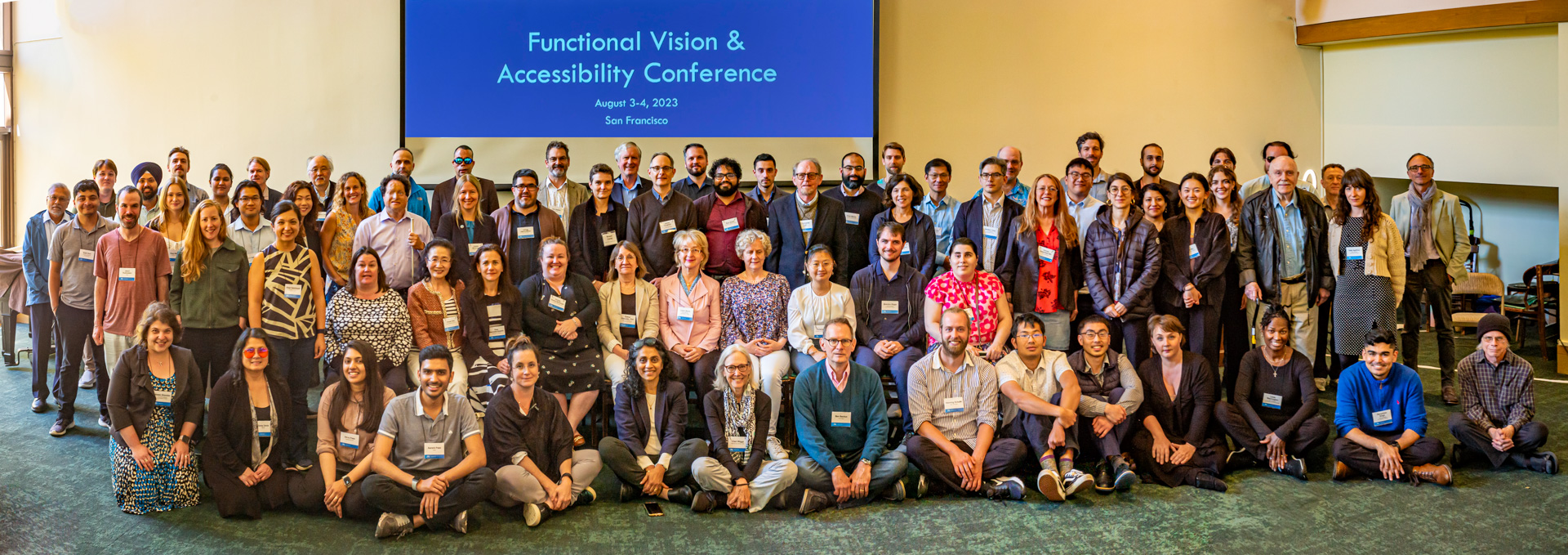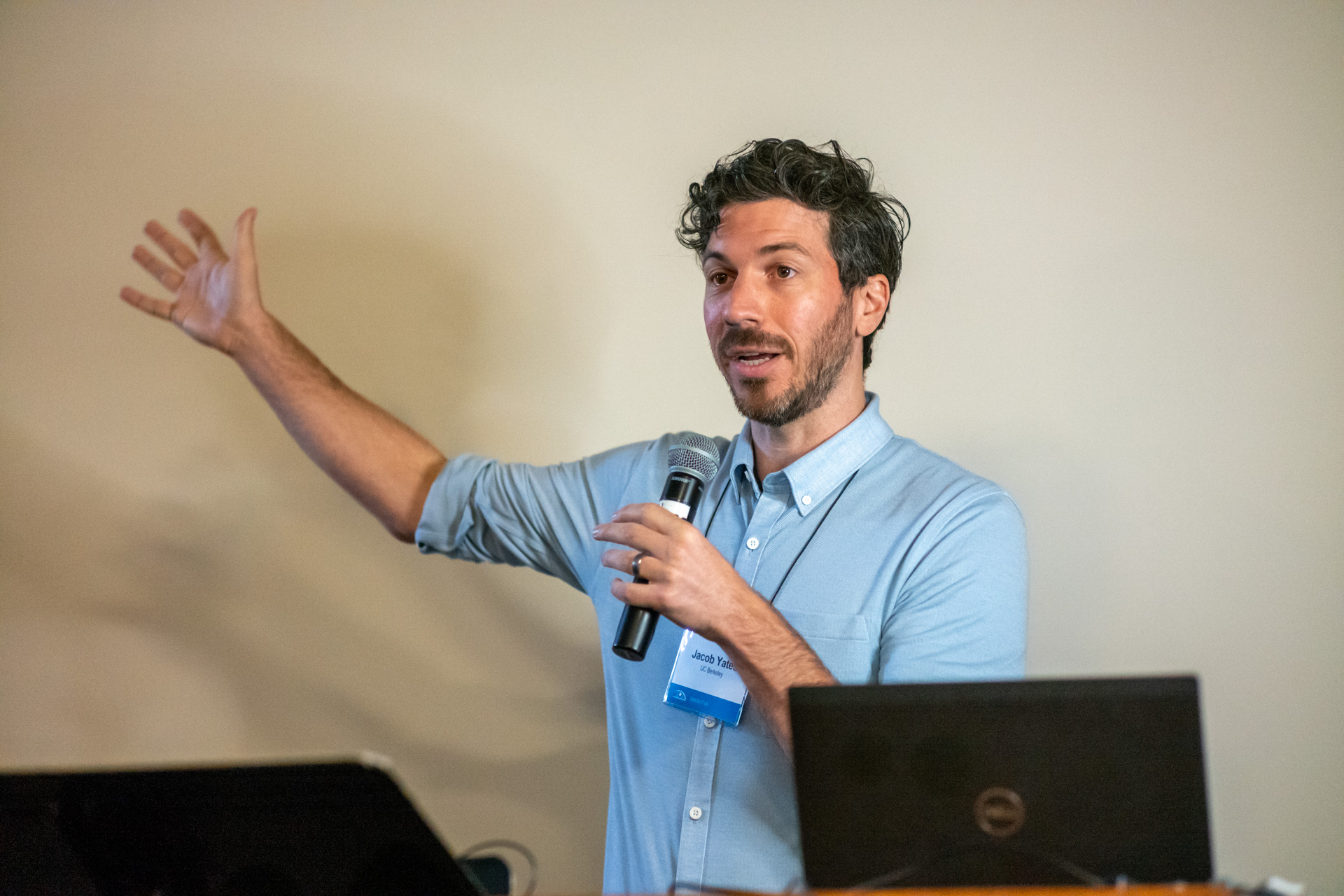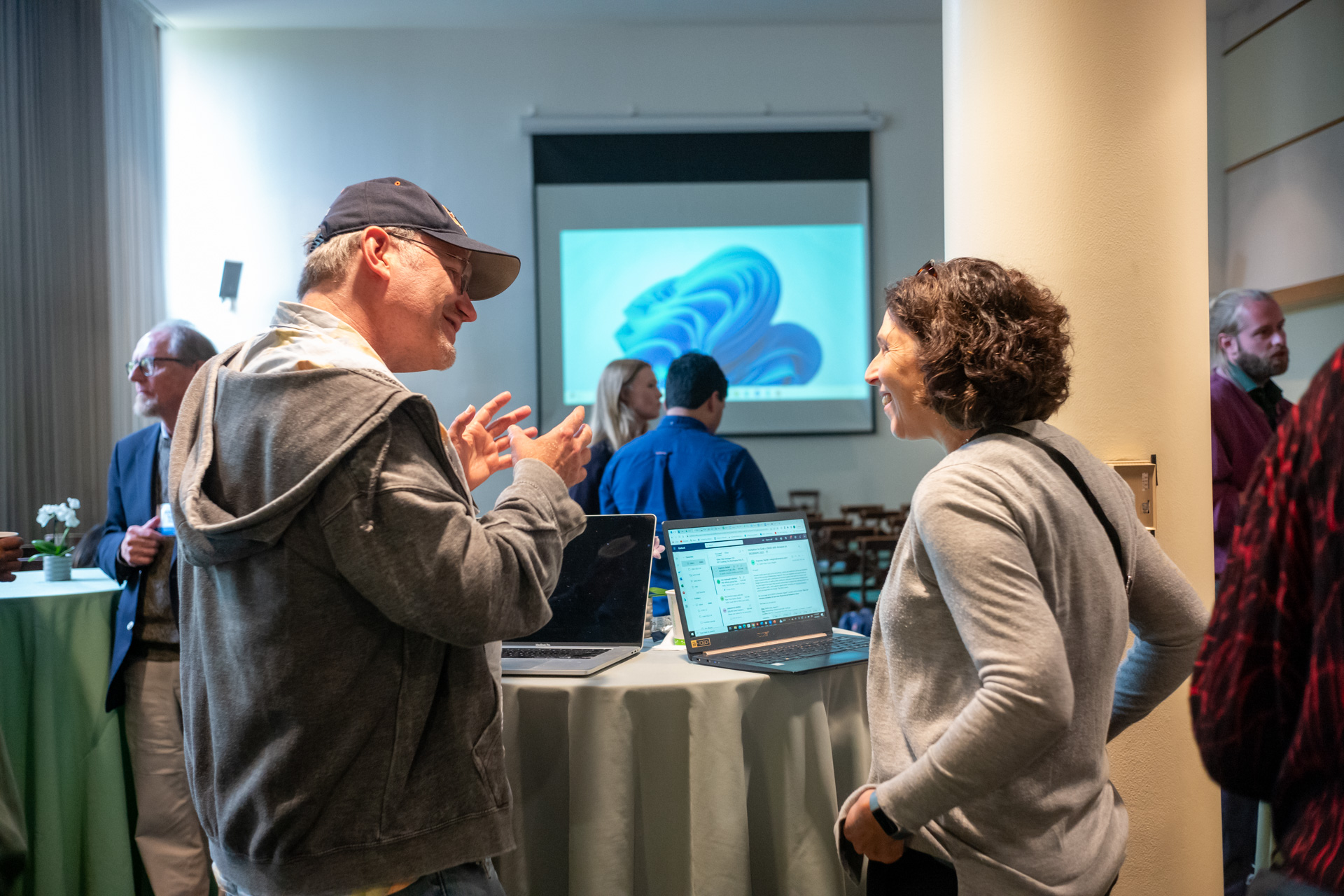
As part of its 60th anniversary celebrations, the Smith-Kettlewell Eye Research Institute successfully hosted the Functional Vision and Accessibility Conference on August 3-4, 2023, in the heart of San Francisco, California. This groundbreaking event brought together leading experts, researchers, and advocates in the fields of functional vision and accessibility to discuss and explore the latest advancements, challenges, and solutions in enhancing the lives of individuals with visual impairments.
The two-day conference organized by Smith-Kettlewell senior scientists Preeti Verghese, PhD and James Coughlan, PhD provided an invaluable platform for participants to exchange ideas, share research findings, and engage in insightful discussions, fostering collaborations that are poised to shape the future of research to address visual impairment, adaptive strategies, assistive technologies, and inclusive design. Attendees included researchers, clinicians, technology developers, educators, and individuals directly impacted by visual impairments, creating the perfect audience to evaluate the state of the science and to advocate for research priorities and accessibility needs.

Highlights of the Conference:
Keynote Address: Suzanne McKee, PhD, Senior Scientist Emerita delivered an inspiring keynote address, placing the conference in the context of Smith-Kettlewell’s unique position at the intersection of basic science, translational research for clinical populations, and accessibility needs for the blind. Attendees gained insights into emerging technologies, pioneering research, and the potential impact on the lives of visually impaired individuals.
 Cutting-Edge Research: Presentations showcased groundbreaking research in fields such as the role of eye movements as a marker for visual and neurologic disease, the synergy between motor control of the eyes and normal visual development, the latest imaging techniques to evaluate visual function from the retina to the cortex, brain plasticity in neurological conditions and in blindness, augmented reality and machine learning for Vision Science, and advanced braille technologies. Attendees had the opportunity to engage with leading researchers and learn about the latest developments in the field.
Cutting-Edge Research: Presentations showcased groundbreaking research in fields such as the role of eye movements as a marker for visual and neurologic disease, the synergy between motor control of the eyes and normal visual development, the latest imaging techniques to evaluate visual function from the retina to the cortex, brain plasticity in neurological conditions and in blindness, augmented reality and machine learning for Vision Science, and advanced braille technologies. Attendees had the opportunity to engage with leading researchers and learn about the latest developments in the field.
Inclusive Design and Technology Demonstrations: The conference featured demonstrations of cutting-edge assistive technologies, adaptive devices, and inclusive design solutions. Participants witnessed the transformative potential of these innovations to enhance functional vision and accessibility.
Panel Discussions: Thought-provoking panel discussions addressed key topics including using basic research to address visual impairment, application of cutting-edge methodologies to understanding visual function, universal design, education for the visually impaired, accessibility in public spaces, and the ethical considerations surrounding assistive technologies. Experts and stakeholders engaged in in-depth conversations that explored the challenges and opportunities in these areas.
Networking Opportunities:  Attendees had ample opportunities to network with peers, share experiences, and establish valuable connections. These interactions fostered collaborations that will continue to drive progress in the functional vision and accessibility fields. With its emphasis on the future of the fields of vision science and accessibility engineering, the conference especially encouraged attendance by early-career researchers and provided dedicated time for trainees to interact with established investigators.
Attendees had ample opportunities to network with peers, share experiences, and establish valuable connections. These interactions fostered collaborations that will continue to drive progress in the functional vision and accessibility fields. With its emphasis on the future of the fields of vision science and accessibility engineering, the conference especially encouraged attendance by early-career researchers and provided dedicated time for trainees to interact with established investigators.
Dr. John Brabyn, PhD, Executive Director of the Smith-Kettlewell Eye Research Institute, expressed his enthusiasm about the conference, saying, "We are delighted with the success of the Functional Vision and Accessibility Conference. The discussions and collaborations that emerged from this event will undoubtedly contribute to the development of innovative solutions that improve the lives of individuals with visual impairments."
The Functional Vision and Accessibility Conference at the Smith-Kettlewell Eye Research Institute showcased the institute's commitment to advancing knowledge, fostering collaboration, and driving innovation in the realm of functional vision, accessibility and rehabilitation. With its resounding success, the conference sets the stage for ongoing dialogue and breakthroughs that will positively impact the lives of millions around the world.
Video recordings of the conference talks can now be found here, on SKERI's YouTube channel.
